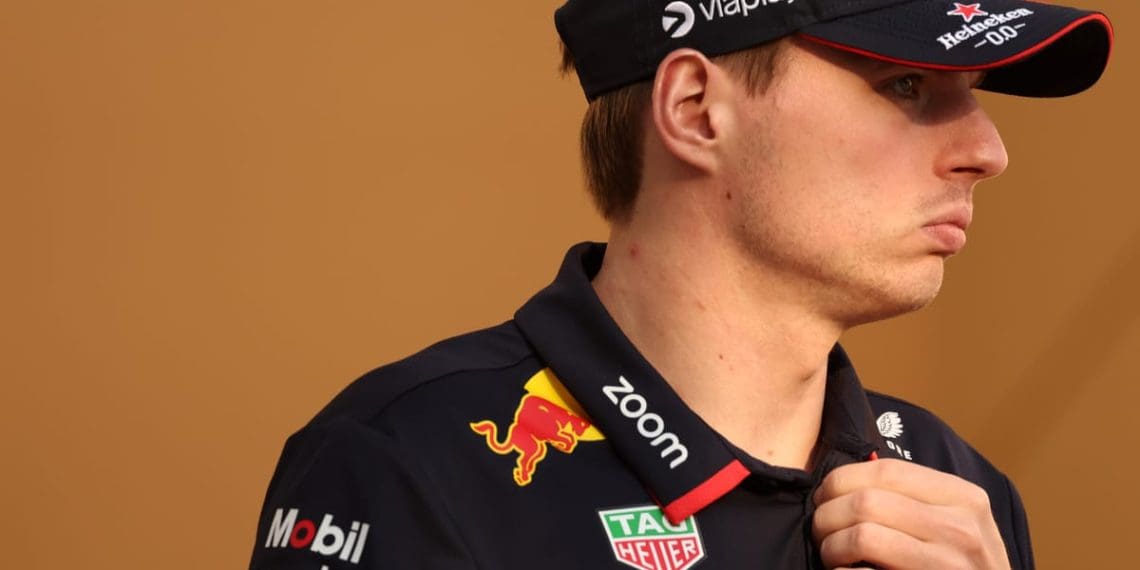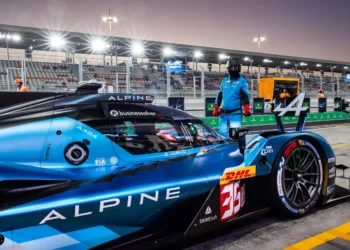Calendar of 24 Formula 1 races in 2024 is widely celebrated by series leaders as proof of the growing appeal of hosting a grand prix. However, not everyone in the paddock shares this enthusiasm. This became evident during the first press conference of the season in Bahrain, where top drivers Max Verstappen and Fernando Alonso expressed strong criticism of the expanding F1 calendar. In an official press conference sanctioned by the FIA, both drivers chose to openly express their concerns rather than giving a generic response. This lack of support from the sport’s top figures is notable, especially considering the backdrop and expectation surrounding the new season.
F1 CEO Stefano Domenicali has previously mentioned the possibility of having up to 30 races in a season. However, he clarified that this was not an actively pursued goal by F1, but rather a number that could be reached based on the interest of current and potential locations. Domenicali stated in a podcast last year that the goal for the foreseeable future was to have a calendar of 24 races.
Prior to the Bahrain Grand Prix, drivers were asked about the idea of rotating drivers to deal with possible future calendar expansions. Although teams already rotate other members of their race crews, this approach is less viable for drivers due to the limited number of talented drivers and the importance of consistent performance and audience engagement. Drivers acknowledge that they are not the most affected by longer calendars. Mechanics and other team members, who are not as well paid and do not have the same privileges, often need to arrive at the circuit earlier and leave later than the star drivers.
Carlos Sainz, Ferrari driver, expressed his opposition to the idea of driver rotation, stating that this would be a clear indication that F1 has gone too far. He also expressed concerns about F1 producing an excessive amount of on-track action. Sainz believes that the current number of races is already pushing the limits for team personnel, drivers, journalists, and others involved in F1. He emphasized the importance of having time to spend with family and maintaining a connection with home. Sainz compared F1 to the Champions League in football, highlighting the special nature of occasional events that create excitement and anticipation. He believes that F1 runs the risk of becoming too constant, with a race every weekend, which could lead to a drop in viewership.
Lewis Hamilton, seven-time F1 champion, echoed Sainz’s points and suggested that F1 may already have too many races. He emphasized the need to prioritize quality over quantity and consider the environmental impact of a large number of races and extensive travel. Hamilton believes that sustainability should be at the center of F1’s decision-making process in the future.
Max Verstappen, who has already expressed dissatisfaction with various aspects of modern F1, reiterated his concerns about the expanded calendar. He believes that F1 is already exceeding the limit of races and personally does not see himself continuing in the sport for another decade under the current calendar. Verstappen emphasized the importance of maintaining a good quality of life and expressed his desire to focus on other projects in the future. He believes that the demands of F1 become overwhelming over time. Verstappen also suggested that many other drivers share his opinions privately.
Fernando Alonso agreed with the comments made by his fellow drivers and described the 24-race calendar as excessive. He recalled that when he started in F1, there were only 16 races, which gradually increased to 18 and then 20. Alonso believes that the current number of races is not sustainable for the future. He highlighted that even the world champion finds the season too long and there is a lack of motivation for drivers and teams when the championship is decided early. Alonso emphasized the need for someone to understand the negative impact of a prolonged calendar on the sport.
While it is not uncommon for drivers to express concerns about the size of the calendar, the fact that these criticisms were made in an official setting before the start of the season is significant. This highlights the strong feelings of the drivers on the subject and sends a message to F1 as it continues to add new events and secure long-term agreements with locations. While the 24-race calendar is a remarkable achievement for F1 commercially, the lack of enthusiasm from its top stars is notable and should not be ignored.
© 2024
This weekend’s Formula 1 race was marked by excitement and twists. The Portuguese Grand Prix, held at the Algarve International Circuit, was the stage for fierce competition and unexpected surprises.
The start was electrifying, with drivers accelerating and seeking the best positions. In the first corners, there was an incident between two competitors, resulting in a damaged car and the need for the safety car to come in.
After the restart, pit stop strategies were crucial for the drivers’ performance. Some opted for faster pit stops, while others risked extending their time on the track. These decisions had a direct impact on the final positions.
The rain was also an important factor during the race. At one point, a heavy storm hit the circuit, making the track slippery and affecting tire grip. This led to several skids and risky overtakes.
In the end, it was driver X who crossed the finish line in first place, achieving an impressive victory. With flawless performance and intelligent strategy, he managed to surpass his competitors and secure the top spot on the podium.
The race also had surprises for Brazilian fans. Driver Y, who had started in an unfavorable position, managed to make an incredible recovery race. With daring overtakes and a fast pace, he finished in a prominent position.
Overall, the Portuguese Grand Prix was an exciting and adrenaline-filled race. The drivers showcased skill and courage, providing an incredible spectacle for Formula 1 fans. Now, everyone eagerly awaits the next race to see who will come out victorious.










